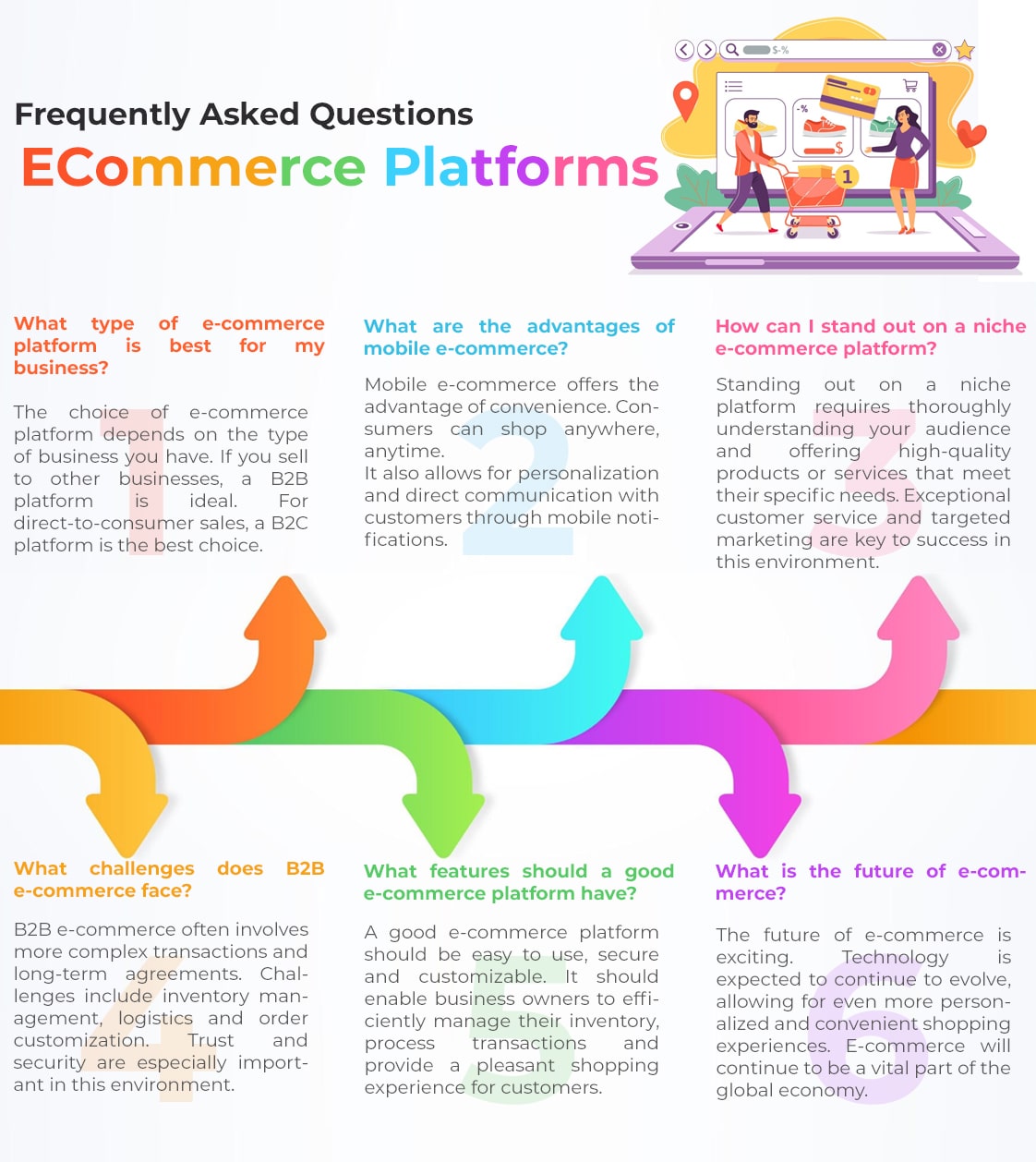
Portafolio de Páginas Web
Diseño Web Profesional
Types of E-Commerce Platforms:
A WORLD OF OPPORTUNITIES
Explore the various types of e-commerce platforms in this informative article about online commerce.
Discover how these platforms can transform your business.
In today’s digital age, e-commerce has become a critical element for businesses around the world.
The ability to reach customers across the globe efficiently is an opportunity that no business can afford to miss. In this article, we will explore the “Types of e-commerce platforms” and how they can boost your online business.
Read on to discover all the possibilities that this exciting world of online commerce has to offer.

Types of e-commerce platforms
B2B E-Commerce Platforms
B2B, or business-to-business, e-commerce is a form of commerce in which companies transact with each other over the Internet. This type of platform is essential for companies that offer products or services to other companies. B2B platforms provide a digital space where companies can find trading partners, place orders and streamline their operations.
B2C E-Commerce Platforms
B2C, or business-to-consumer, e-commerce is the most common and well-known. On this type of platform, companies sell products or services directly to consumers. Platforms such as Amazon and eBay are examples of this model. They allow consumers to buy a wide range of products online quickly and conveniently.
C2C E-Commerce Platforms
C2C, or consumer-to-consumer, e-commerce refers to transactions in which consumers sell products or services directly to other consumers through online platforms. A famous example of this is eBay, where individuals can buy and sell used items.
C2B E-Commerce Platforms
C2B, or consumer-to-business, e-commerce is a relatively new model where consumers offer products or services to businesses. An example of this is when an influencer offers to promote a product in exchange for compensation. This form of e-commerce is constantly growing.
P2P e-commerce platforms
Peer-to-peer, or P2P, commerce is a variant where individuals transact directly with each other. This can be through the sale of goods, services or even the exchange of skills. Apps and websites such as Airbnb and Uber are examples of P2P platforms.
Mobile E-Commerce Platforms
The use of mobile devices has transformed the way we shop online. Mobile e-commerce platforms allow consumers to purchase products and services through mobile apps.
This facilitates on-the-go shopping and has led to a significant increase in online sales.
Multichannel E-Commerce Platforms
Multichannel platforms allow businesses to sell products or services through multiple online and offline channels. This includes online stores, physical stores and social media.
The key here is to provide a seamless shopping experience no matter how customers choose to interact with your business.
Niche E-Commerce Platforms
These platforms are designed to cater to a very specific audience. They may focus on an industry, product type or even a particular demographic. Examples of niche e-commerce platforms include websites that sell organic products or handmade items.

Conclusion
In an increasingly digital world, understanding the different types of e-commerce platforms is essential to business success.
Whether you are looking to expand your reach, sell niche products, or simply enhance
your customers’ shopping experience, these platforms offer a variety of opportunities.
Make the most of online commerce and take your business to the next level!

